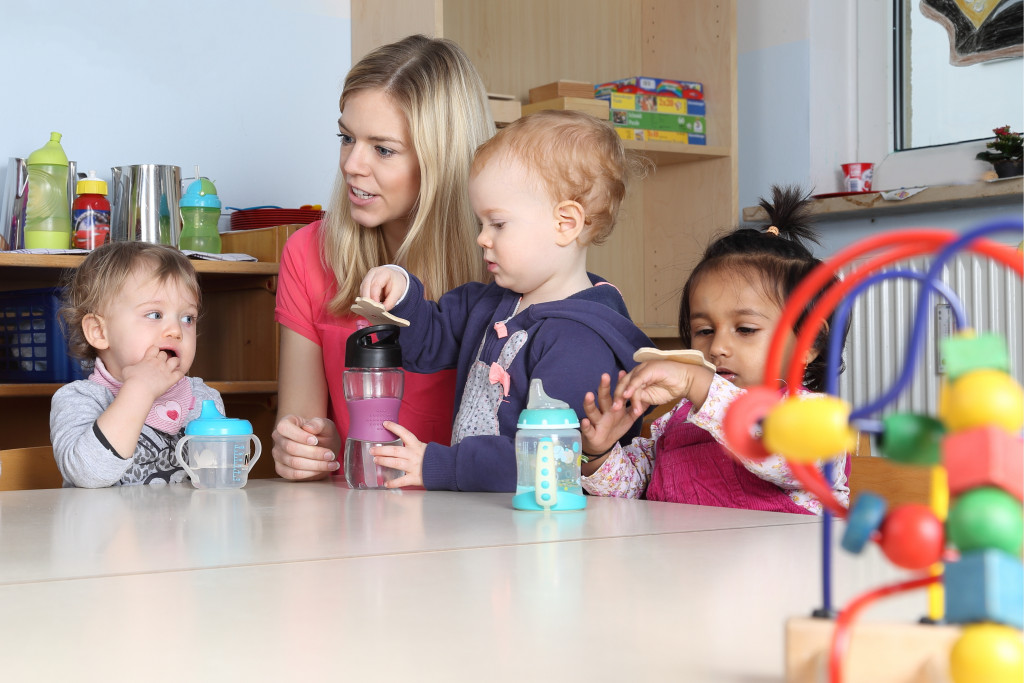The COVID-19 pandemic really put a downer on many families’ plans, and while several have found ways to work around the restrictions and still have fun, there’s no denying that most families could have done a lot more and lost so much due to its adverse effects. Luckily enough, we can thank all the responsible parents around the world for gritting their teeth and making ends meet for their families, no matter how difficult or imposing the challenges may appear.
However, we’re starting to observe an unhealthy trend of overprotective parents watching every little detail of their toddlers’ actions and coddling them at every opportunity available, even when it’s not needed. And while we strongly support the more hands-on approach parents are taking and immersing themselves in the lives of their children, too much coddling also carries negative impacts that not too many people are aware of.
Leads To Overdependence And Hurts Self-Confidence
We understand that it is the parent’s responsibility to guide their kids and hold their hand through challenging experiences in their life; however, too much handholding and not giving them the chance to learn from mistakes lead to overdependence in the long term. Sure, it can get worrisome when you’re unaware of how your child is fairing, but if you always intervene and end up doing most of the work yourself, it hurts their self-confidence and the development of their self-esteem.
-
Intervene Only When Necessary
As parents, intervention is a necessary part of the responsibility, but only insert yourself and provide guidance when help is unavoidable because you want your toddler to engage in problem-solving skills or remembering the house rules you’ve told them before. You see, far too many families don’t give their kids enough credit, and they’re more than capable of thinking for themselves to a certain degree and applying their knowledge. Just remember to set your boundaries and step in when it’s too much to handle.
-
Balance Praise And Discipline
Likewise, the intervention also comes in the form of feedback, on which you have two choices to select from; praise and discipline. Praise should be used when your child does something good, and you want to reinforce that positive thinking for when the next opportunity pops up. In contrast, you want to practice discipline if they’ve disobeyed any of your rules or failed to learn from previous mistakes that you’ve pointed out. Overall, you want to balance these feedback mechanisms to help with their mental well-being and growth.

Flees At The First Sight Of Discomfort And Failure
Another negative manifestation of overprotective parenting and too much coddling is your toddler’s behavior toward discomfort and failure; they build the tendency to flee and not handle it too well. As a result of too much hand-holding, they don’t know the appropriate way of responding to difficult situations in their life and will almost always choose to flee instead of facing said challenges head-on.
-
Be Honest And Truthful
A healthy way of teaching your child about discomfort and failure is through honesty and truthfulness, and by letting them know that you have moments of vulnerability and experience difficulties as well while remaining courageous, they will learn to mimic the same behavior. Of course, we know how that it might seem counterproductive to let your children see your weaker side, but your honesty will help foster a stronger bond with them and enable the strength they thought they didn’t have in the first place.
-
Introduce Creative Learning Opportunities
Apart from self-actualization and sharing, introducing creative learning opportunities wherein they actively utilize problem-solving skills and imagination also helps reinforce their inner strength and confidence to face challenges. For example, you could try unique game-making, explore storytelling and acting, or even DIY vinyl t-shirt designs, so your kids get to create their own funky clothing line.
Constantly Searches For The Approval Of Others
Last but not least, one of the most negative impacts too much coddling can have on a toddler is how it affects their mindset later on in life because they will constantly search for the approval of others instead of deciding for themselves. They will constantly seek validation and stick to people who can replicate the same scenario of dependence they grew used to as a child, which often exposes them to people disguised as friends but carries ill-intent. And once it does reach this level of severity, it often takes more than just therapy and counseling to work through their insecurities.
Cuddle, Not Coddle, Know The Difference!
We have nothing against cuddling with your kids and being close with them; be self-aware of when you’re overdoing it. At the end of the day, you want to balance things out and not provide every little thing on a silver plate, so let them do their part of the chores and learn from their mistakes.